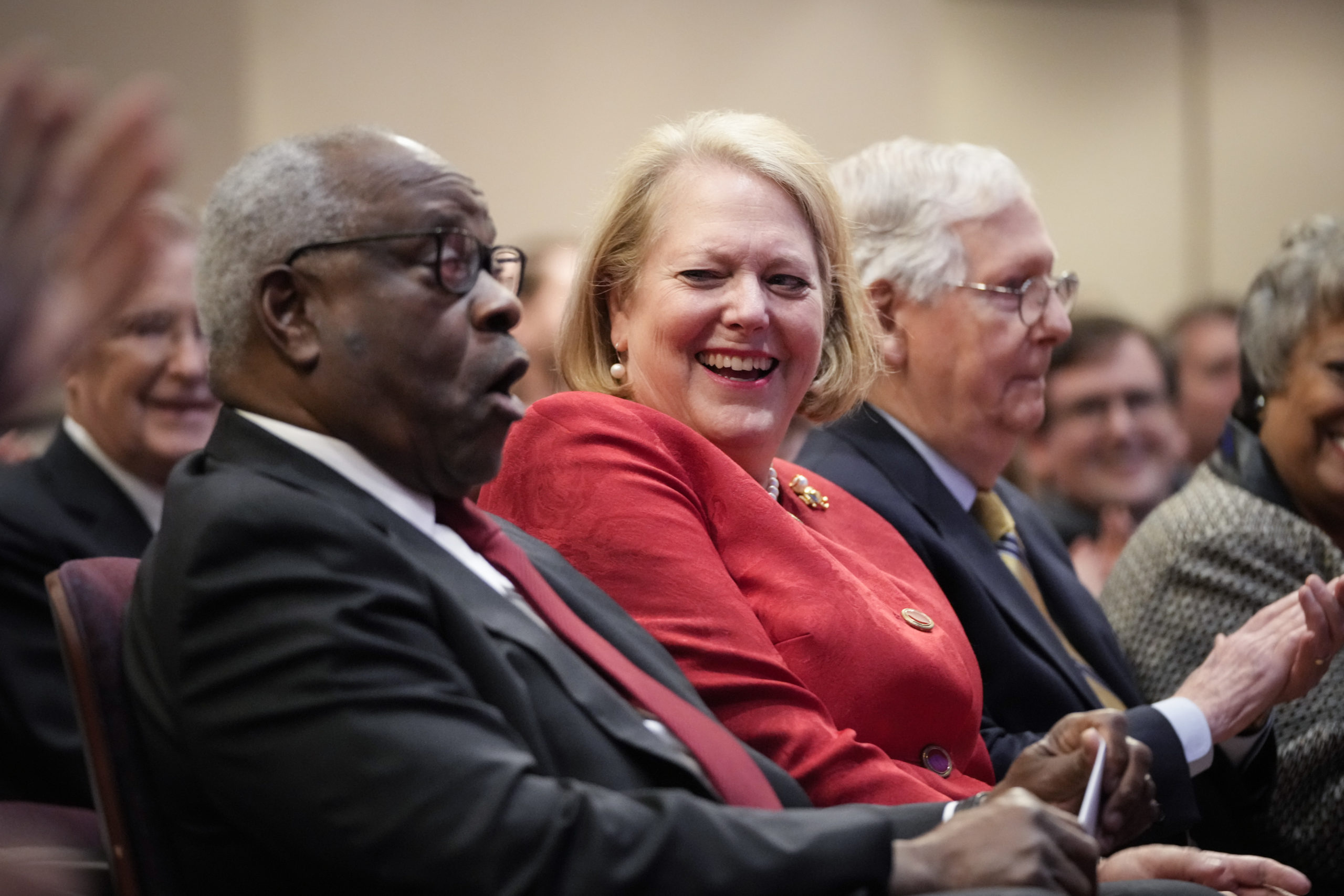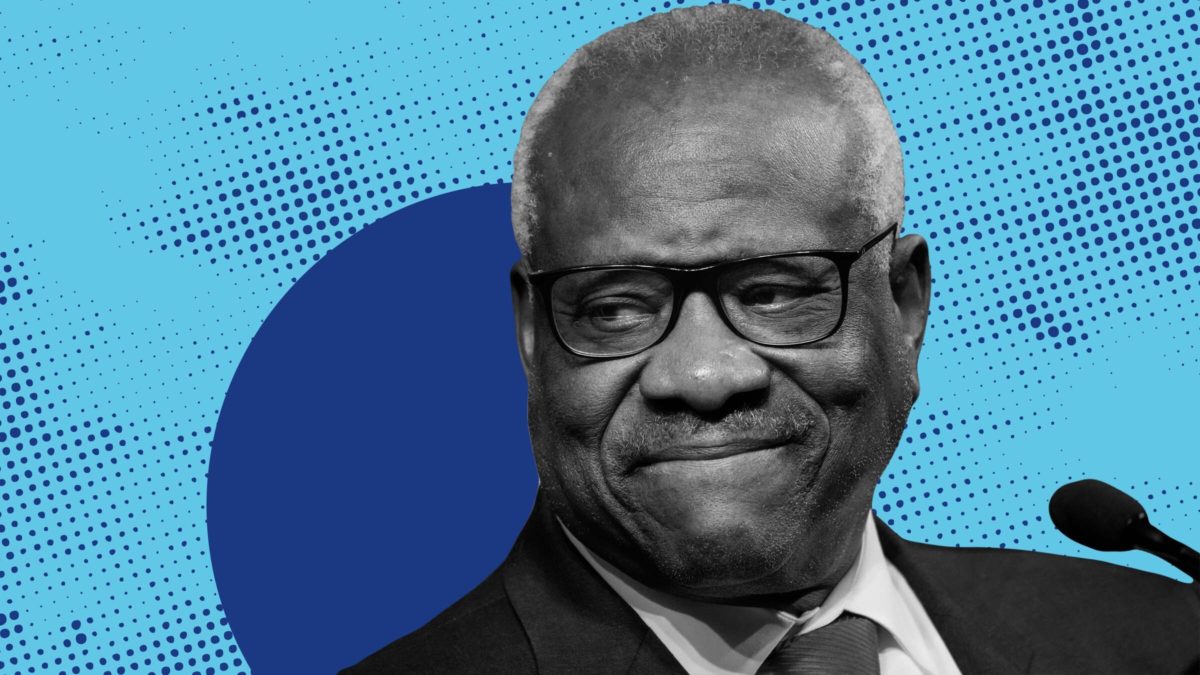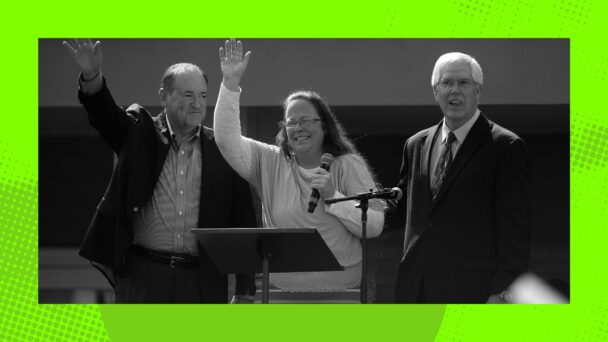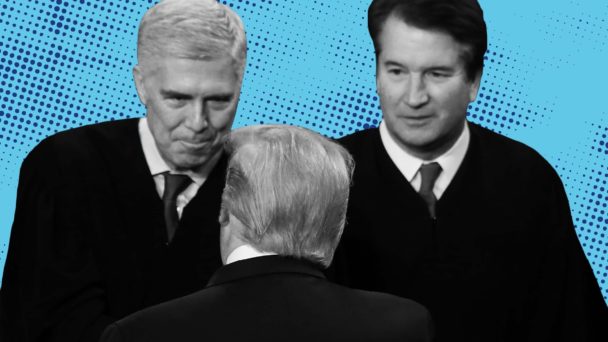Justice Clarence Thomas, no friend to Black people, has hired Crystal Clanton, who is also no friend to Black people, to join the elite ranks of Supreme Court clerks. Clanton gained national recognition in 2017 when The New Yorker’s Jane Mayer reported that she’d texted a coworker at Turning Point USA, “I HATE BLACK PEOPLE. Like fuck them all…I hate blacks. End of story.” (In an email to Mayer, Clanton claimed to “have no recollection of these messages.” She also stated that the texts, sent when she was 20 years old, “do not reflect what I believe or who I am and the same was true when I was a teenager.”)
The far-right organization fired her when those texts became public. The following year, Mediaite reviewed and reported on Snapchat messages Clanton exchanged with other TPUSA staffers, including a photo of a man who appeared to be Arab that Clanton captioned, “Just thinking about ways to do another 9/11.”
It is a challenge to be deemed too publicly racist for TPUSA, whose executive director recently declared Martin Luther King, Jr. a “bad guy” and the Civil Rights Act of 1964 a “mistake,” but Clanton’s unvarnished remarks were up to the task. After TPUSA gave her the boot, Clanton went to work for Clarence Thomas’s wife, Ginni, as detailed by Ruth Marcus of The Washington Post. Ginni told her husband that TPUSA treated Clanton in a “horrible way,” and the couple invited Clanton to move in with them. Clanton lived with the Thomases for almost a year, during which Clarence Thomas encouraged her to go to law school. Thomas supplied her with a recommendation when she applied, and recommended her clerkship application to Eleventh Circuit Judge William Pryor. Like many other Pryor clerks, she will now go on to clerk for Thomas, too.
Clanton has never denied that she made the explicitly racist comments. She has never said she is sorry or that she was wrong. (Some of Clanton’s allies have since insinuated that Clanton could be the victim of an elaborate smear campaign involving forged texts, but as Marcus writes, that just doesn’t pass the smell test.) Pryor, for his part, claims that she did not deny the allegations because she signed a nondisclosure agreement with TPUSA. Thomas similarly defended her, writing “I know Crystal Clanton, and I know bigotry.” Both, it seems, are welcome in his home.
While all clerkships carry a certain amount of prestige, clerking for the Supreme Court acts as both launch pad and rocket fuel to propel young attorneys’ careers through the stratosphere. Beyond the justices, there may be no one with more unfettered access and ability to influence the Court’s deliberations than their clerks, who provide research assistance, write legal memos, and prepare drafts of opinions, getting the first crack at creating constitutional law.
The selection of Clanton as a Supreme Court clerk seems driven at least in part by the same impish “own-the-libs” ethos that motivates much of conservative decisionmaking. Thomas is especially familiar with this, since President George H. W. Bush’s decision to replace first Black Supreme Court justice and civil rights icon Thurgood Marshall with Thomas, a Black man who would undo the progress Marshall fought for, was basically trolling—mocking people who care about such things as racial diversity. Thomas knows that empowering Clanton will do the same.

When the “I HATE BLACK PEOPLE” lady gets a Supreme Court clerkship (Photo by Drew Angerer/Getty Images)
But such choices have consequences that extend beyond the right’s petty amusement. When Republicans launch their next legal attack on the Fifteenth Amendment and the Voting Rights Act, Clanton will be advising Thomas on how he should vote. If, God forbid, Trump wins the White House and reinstitutes a Muslim ban, Clanton will be in Thomas’s chambers, saying that’s A-okay. Even if the substance of a lawsuit isn’t directly related to racial justice, if one of the parties or lawyers is a person of color? Good luck getting Clanton on your side.
Every day, there is less reason to think the Court is capable of administering equal justice under law. Americans—especially Americans who are Black, Arab, or Muslim—have no reason to believe they are getting a fair shake from a Court which permits Crystal Clanton to take part in shaping deliberations. If the legal profession had standards, and if the Supreme Court deserved to be taken seriously, Clanton would be a pariah. Instead, the conservative legal movement is handing her the keys to the jurisprudential kingdom.




